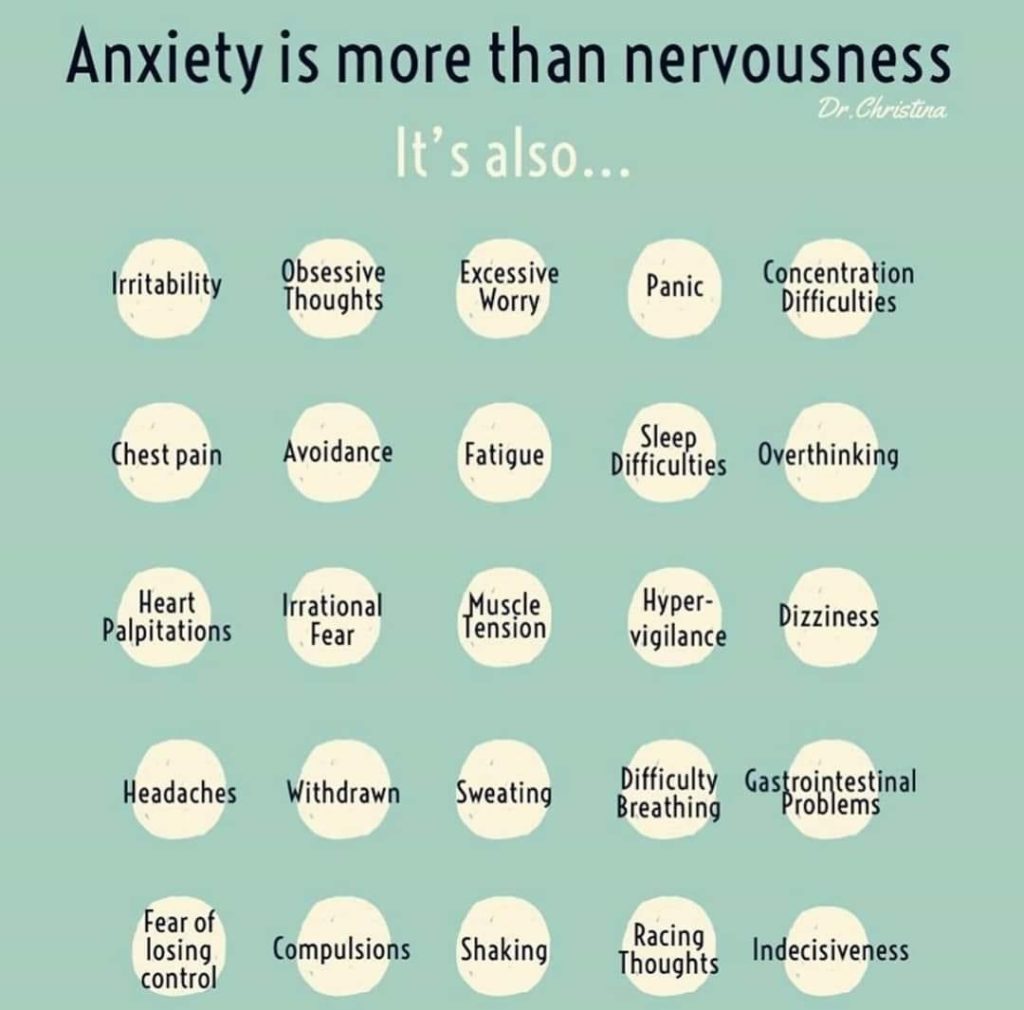Can Anxiety Cause Physical Symptoms?
The short answer is yes, you can feel anxiety in the body. Many people are surprised to realise just how many physical symptoms are caused by anxiety. They often attend their GP surgery to discuss their physical symptoms because they’re concerned about them or the symptoms are affecting the way they live their lives.
A common example I see in clinical practice is people seeking medical advice for neck and shoulder tension or pain. This can be a result of being overly stressed and tensing your neck and shoulder muscles without even realising it.
Have you ever been doing something and you realise your shoulders are raised higher than they ought to be? If you find yourself doing this a lot, experiencing muscle pain or discomfort makes sense because our bodies aren’t designed to be tense for prolonged periods of time. Going to a GP or a specialist may indeed help with pain management, but the underlying cause needs to be addressed as well. By which I mean the stress and/or anxiety that’s leading you to tense your muscles in the first place.
What Does Anxiety Feel Like in the Body?
When we’re anxious, our fight or flight system is activated, and adrenalin is released into the bloodstream. This adrenalin causes an abundance of physical symptoms with the intention of helping us either fight the threat or run away from it. These include:
- Shaking
- Sweating
- Headaches
- Neck/shoulder pain
- Nausea
- Dizziness
- Breathing changes
- Palpitations
- Butterflies in your tummy
- Pins and needles
- The sudden urge to go to the toilet
Sometimes, it can be hard to work out whether these symptoms are being caused by anxiety or something else (like a physical health condition). A good way to try and work this out is to complete a diary of when you feel the physical symptom(s) and to record what you were thinking about at the time. In CBT, we know that our feelings and physical symptoms are linked to our thoughts.
If you experience any physical symptoms that could be related to anxiety and you aren’t sure what’s causing them, you could try and identify what you were thinking about in the moment you noticed the symptoms start. This can help you determine whether the physical changes may be related to how you were thinking rather than being brought on by a physical cause.
What Are Some Typical Anxious Thoughts Experienced by New Mums?
New mums can experience a range of anxious thoughts, from worrying about their baby’s sleep to more distressing intrusive thoughts about accidentally or unintentionally harming their baby. It’s also very common to have anxious thoughts about your competency as a parent. Things like ‘am I a bad mum?’ or ‘am I do something wrong?’. For more on this subject, browse the links below:
- Help! I’m Anxious About Weaning My Baby
- Intrusive Thoughts – What Kind of Mum Do They Make You?
- You’re Not Failing as a Mum, It’s Your Inner Critic
When you experience these worried or anxious thoughts, you may notice an increase in physical symptoms such as nausea, butterflies in your tummy or a tension headache.
Another way to work out whether your physical symptoms are anxiety related is to notice whether they’re there when you don’t feel anxious or worried. If they only occur when you’re thinking in an anxious way, it’s likely the symptoms are linked to anxiety.
How Can CBT Help with Anxiety?
They say knowledge is power, and this is how CBT can help with anxiety. The more you can get in tune with your thoughts, feelings and physical symptoms, and your responses to them, the more you can identify patterns which may be negatively affecting your life. With greater awareness, you can work relaxing and gaining a sense of calmness.
One of my favourite ways to do this is by using mindfulness. It helps me focus my attention and relax, and I always feel calmer in my mind and body when I’m done. Stress can lead to muscle tension, and the opposite of tension is relaxation. So, if you aren’t doing any activities to relax your body and mind, no wonder you may be feeling more anxious and experiencing physical symptoms that are associated with it!
Therapy for New Mums
If you’re struggling with anxiety or any other aspect of motherhood, I can help. Reach out for support by booking a consultation here or subscribe to The Nurture Toolkit for free, actionable tips and prompts straight to your inbox. I also share lots of encouragement and support via Instagram.
Useful Links
Is Google a Blessing or a Curse for Anxious New Mums?
